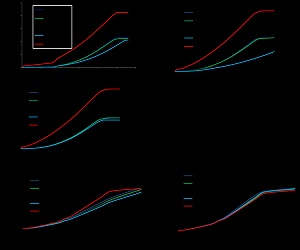
Andisheh Yazdanpanaha
University of Western Ontario, Canada
Title: Effect of trace metals addition on food waste anaerobic digestion
Biography
Biography: Andisheh Yazdanpanaha
Abstract
This study presents the impact of trace elements supplementation (TEs: Fe [50-400 mg/L], Ni [0.5-20 mg/L], Co [0.1-5 mg/L], Se [0.005-0.8 mg/L] and Mo [2-20mg/L]) individually as well as in mixtures on the specific methanogenic activity (SMA), maximum specific methane production rate (SMPRmax) and apparent hydrolysis rate constant (Kh) of food waste (FW) anaerobic digestion. Seriesof batch anaerobic digestion tests with kitchen FW as substrate were performed at various concentrations of different TEs under mesophilic conditions using Fe-rich inoculum (≈1.7 g/L). The results of this study revealed that addition of TEs adversely impacted methanogenic activity especially at the maximum concentrations of Fe, Ni, Co and Se by 47%, 70%, 33% and 37%, respectively. The effect of Mo on the methane production and SMA rate was neutral. Fe, Ni, and Co significantly affected the methane productions at elevated concentrations unlike Se and Mo. Impacts of individual supplementation of Fe, Co, Ni, Se and Mo on the SMPRmax and Kh were negligible except for Fe (400 mg/L) which moderately reduced the SMPRmax by 24%. Similar results to the control (no TEs addition), were also observed for the Kh when different mixtures of TEs were used, however, unlike the Kh, positive impacts on the SMPRmax (12%-22% enhancement) were obtained, possibly indicating the synergy. It is postulated that the high concentration of Fe in the used inoculum played an indispensable role in reducing the bioavailable fraction of metals in the form of free metal via precipitation, co-precipitation and adsorption in both single and multiple TEs addition forms.


